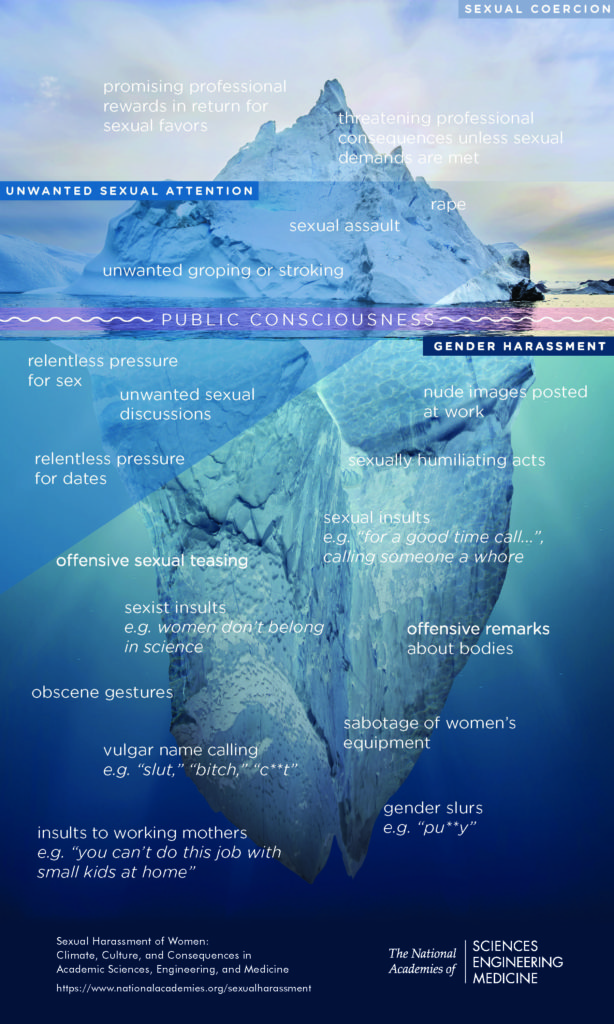Mills College is teaming up to launch an Action Collaborative on Preventing Sexual Harassment in Higher Education. This initiative is in partnership with the National Academies of Sciences, Engineering, and Medicine, as well as more than 40 other colleges and universities.
“It’s consistent with our historic mission and our goal of pursuing gender and racial equity, and we have to continue to recognize, work to prevent and respond to stop sexual harassment,” President Elizabeth Hillman said.
Hillman is also a member of the action collaborative’s leadership group and of a preceding study committee that authored a 2018 report, titled “Sexual Harassment of Women: Climate, Culture, and Consequences in Academic Sciences, Engineering, and Medicine.”
The action collaborative aims to bring academic leaders and essential stakeholders across multiple disciplines together in a space to expand upon and create practices and policies that prevent all forms of sexual harassment in higher education. Other damaging behaviors that sexual harassment encompasses, such as bullying and racial harassment, are also part of the collaborative’s purpose.
“I hope we can build a broader base of knowledge about what we understand about sexual harassment, because the Academies are really focused on evidence and what the data is telling us is working to stop it, to address it, and then also better knowledge of what other institutions are doing,” Hillman said.
The action collaborative has four main goals: raising awareness about sexual harassment and its effects, sharing and promoting institutional policies based on evidence, setting the research agenda and fulfilling the results across institutions, and finding a standard to measure progress.
To support and facilitate these goals, the National Academies will hold regular meetings for members, organize public workshops for the broader community and identify experts and evidence-based research to help advance the action collaborative’s work.
The action collaborative consists of working groups that will meet consistently over the course of four years to determine topics and the necessary components, such as goals and benchmarks, to facilitate their work. Hillman said that she’ll represent Mills at the action collaborative’s meetings as possible, but she is also committed to having other engaged members of the administration and staff attend to learn and share.
The National Academies’ 2018 report found that the academic workplace has a sexual harassment rate of 58%, the second highest in the U.S. The military has the highest rate at 69%.
These statistics are based on meta-analysis from 2003. Furthermore, the United States Department of Labor, reported that about 70% of employees who experience sexual harassment at work never complain.

The report also recommended practices for preventing sexual harassment, such as using bystander intervention and creating annual reports on the topic, to send a message that sexual harassment is taken seriously.
For purposes of this study, the National Academies defined sexual harassment to include “unwanted sexual advances and requests for sexual favors and other unwelcome conduct that is sexual in nature, as well as those situations in which the work or study environment is made intimidating or offensive as a result of actions that are gender-based and that interfere with an individual’s academic or work performance, opportunities for advancement, and morale.”
In response to this, and other report findings, the National Academies and contributing institutions, including Mills, formed the action collaborative to institute the systems-wide changes needed to alter these statistics and outcomes.
“It’s unusual for the Academies to actually continue to support a project that they studied like this,” Hillman said. “They look at concrete issues, they publish a report and then they move on, but on this one they have not moved on. They actually decided that this required more emphasis.”
Mills joins other California institutions, such as University of California Berkeley, University of Southern California and Stanford University, in signing onto the action collaborative.
The National Academies is a collective of three academies — sciences, engineering and medicine — that provide independent analysis and recommendations to the nation. The academies also work to answer complex problems, inform public policy decisions and educate the public.
“Achieving these goals is no small task, but we are confident that together we can make higher education a space where sexual harassment cannot and does not thrive, and where our students, faculty, and staff are able to achieve their goals and ambitions, and reach their full potential,” read a collective statement of commitment from the action collaborative.
